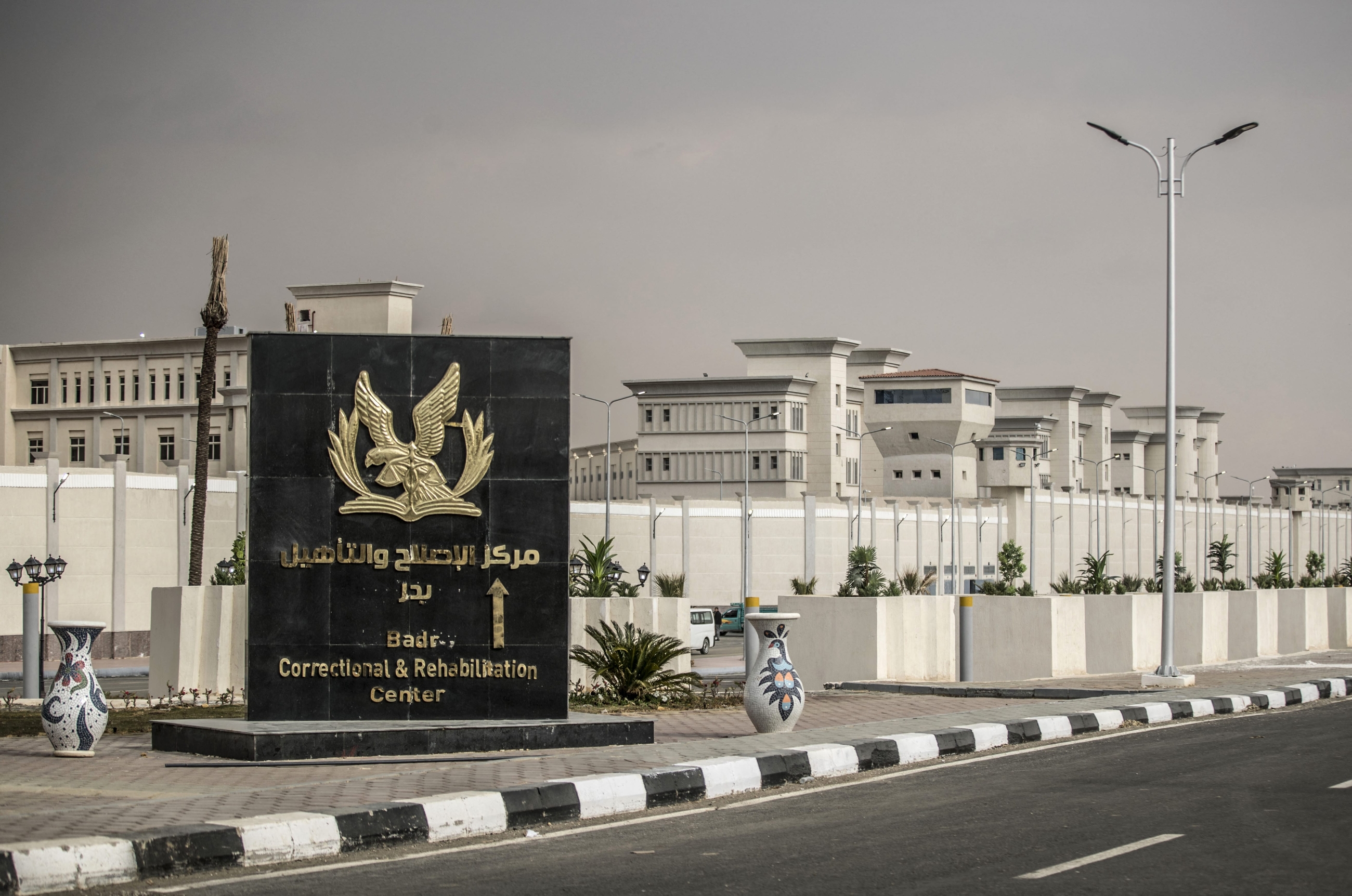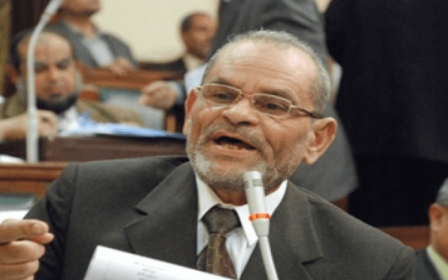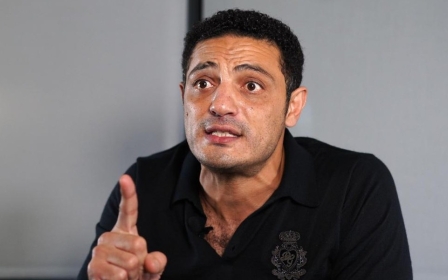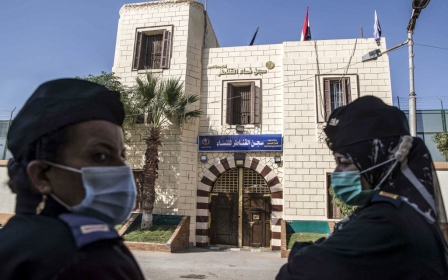Egypt: Dissident's wife arrested after reporting husband's prison abuse

The wife of an Egyptian human rights lawyer was arrested on Monday after posting on social media that her husband was mistreated in prison, according to the Egyptian Initiative for Personal Rights.
Neamatallah Hisham's social media posts said her husband Mohamed al-Baqer had been beaten, gagged and forced to stand in his underwear for two days while being kept in solitary confinement last week.
Hisham said that the authorities targeted Baqer and his cellmates for defending an elderly inmate from being badly treated. Hisham's phone was confiscated after her arrest.
Baqer was arrested in 2019 while attending the interrogation of his client, prominent dissident Alaa Abd el-Fattah.
Abd el-Fattah, a pro-democracy activist, is currently serving a five-year sentence for allegedly spreading false news about police brutality. Baqer is serving a four-year jail term for "broadcasting fake news".
New MEE newsletter: Jerusalem Dispatch
Sign up to get the latest insights and analysis on Israel-Palestine, alongside Turkey Unpacked and other MEE newsletters
UN special rapporteur on human rights defenders, Mary Lawlor, called the news of Hisham's arrest "disturbing". Lawlor regularly highlights Baqer's case along with that of Abd el-Fattah.
New prisons, old problems
Egypt has been criticised by human rights groups for its treatment of political prisoners, with around 60,000 people reportedly being held in overcrowded cells under brutal conditions.
On 11 September 2021, Sisi announced the launch of a National Human Rights Strategy that included plans to modernise prisons.
Soon afterwards, authorities opened two large prison complexes, Badr and Wadi el-Natrun, and a year later they started to relocate political prisoners to the new facilities.
Sisi promoted the new prison facilities as a model in human rights compliance, but rights groups have criticised them for falling short of international standards.
The Egyptian government does not have an official record of the number of prisoners, and Sisi denies his country has any political prisoners.
According to Amnesty International, between April and December last year, Egypt released 895 political prisoners.
However, during the same period, the number of individuals who were detained as political prisoners was almost three times higher than the number of those who were released.
The Arab Reform Initiative, a Paris-based think tank, said in a report in February that the total number of official detention centres in Egypt in 2021 was about 168.
Middle East Eye delivers independent and unrivalled coverage and analysis of the Middle East, North Africa and beyond. To learn more about republishing this content and the associated fees, please fill out this form. More about MEE can be found here.




